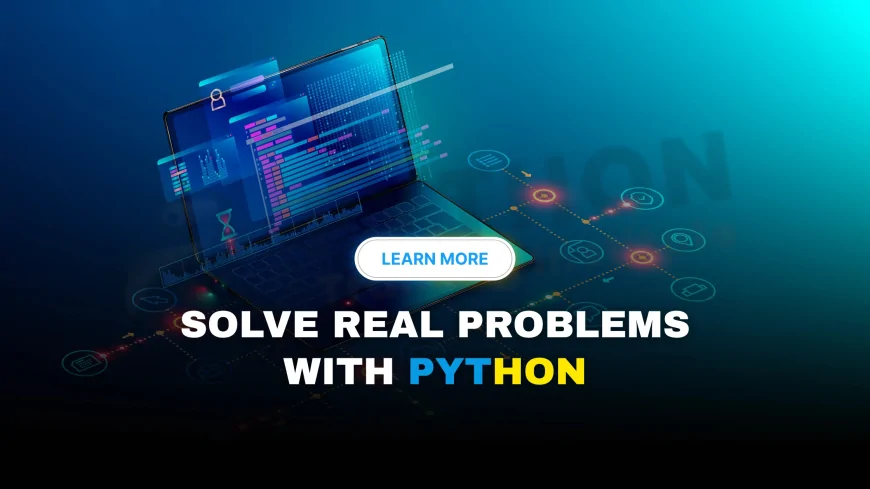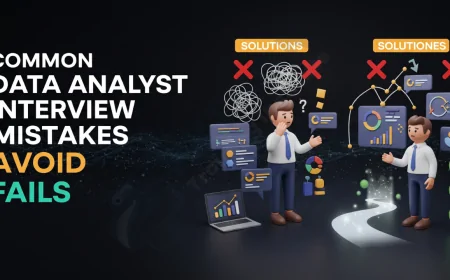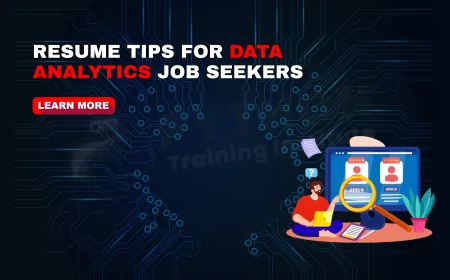Real-World Problem-Solving with Python Courses Pune | Advanced Python Microservices Architecture Training Pune
Solve real-world challenges using Python in Pune. Join project-driven courses to automate tasks, build web APIs, analyze data, and deploy solutions. Flexible formats, expert guides & placement support.

Table of Contents
- Introduction
- Why Real‑World Python Training Matters
- Core Skills You’ll Build
- Pune’s Training Landscape
- Spotlight: WebAsha Technologies
- How to Pick the Right Course
- FAQs
- Conclusion
Introduction
Python is the go-to language for problem-solving in the real world—used for automating workflows, analyzing data, deploying web tools, and more. In Pune’s tech ecosystem, several institutes now focus on experiential training that helps you build practical applications, not just theoretical knowledge. This article walks you through why such courses matter, what they cover, which Pune institutions—especially WebAsha—deliver quality, and how to choose the best one.
Why Real‑World Python Training Matters
1. Bridges theory with practice
Classroom learning often stops at syntax and basic examples. But hands-on training, where you're solving real-world problems, makes the difference between just knowing Python and being able to use it effectively on the job.
2. Builds job-ready portfolios
Employers hire problem solvers, not just coders. When you complete project-based courses, you graduate with concrete work samples—like web API tools, automation scripts, data pipelines—that showcase your skill .
3. Speeds up learning and productivity
Thanks to real-world scenarios, you learn faster. In fact, those who practice through live projects report becoming productive more quickly—and courses that emphasize this practical focus deliver more value .
4. Megatrend relevance
Python's versatility—from data science to web development, automation, and AI—means real-world training often covers multiple domains. This crossover boosts your employability across thriving industries .
5. Strength in community & mentorship
In hands-on courses, the instructor isn't just a lecturer—they're a mentor. They guide you through debugging, architecture decisions, and best practices, supported also by peer networks—something theoretical courses don’t offer .
Industry Quotes & Insights
“Companies don’t need a Python programmer… They look for problem-solvers.”
—Reddit user on the value of real-world ability.
“Real-world experience gained by engaging in Python projects is invaluable… Building a portfolio with Python projects showcases practical skills to employers.”
—FromWebasha Technologies on building career through real projects.
In Summary
Training that emphasizes real-world problem solving ensures you:
-
Do actual work, not just exercises
-
Leave with a portfolio
-
Learn quicker through practical tasks
-
Gain the ability to work across domains
-
Get mentorship and peer feedback
-
Become the kind of candidate companies want—a problem solver, not just a coder
It's the hands-on, messy, realistic projects that transform Python knowledge into real-world capability.
Core Skills You’ll Build
1. Practical Scripting & Automation
-
Automate file and folder management (e.g., data backups, CSV consolidation).
-
Build email alert systems, data scrapers, and web crawling utilities using Python libraries like
smtplib,requests, andBeautifulSoup.
These skills are essential for streamlining recurring tasks and increasing efficiency.
2. Web & API Development
-
Learn to build RESTful APIs using Flask or Django, with endpoint handling, database interaction, and JSON responses.
-
Use
Postmanor browser-based tools to test and validate API functionality.
These form the backbone of modern web application architectures.
3. Database Integration
-
Connect with SQLite, MySQL, or MongoDB, handling CRUD operations programmatically.
-
Use ORMs (e.g., SQLAlchemy or Django ORM) to abstract data access, reduce boilerplate, and ensure robust data models.
4. Data Wrangling & Visualization
-
Clean, transform, and structure data using Pandas and NumPy.
-
Generate EDA visualizations using Matplotlib, Seaborn, or Folium for geographic data mapping.
This is key for validating project data and extracting meaningful insights.
5. Object-Oriented Programming (OOP)
-
Build modular, reusable classes and objects with encapsulation, inheritance, and polymorphism.
-
Implement utilities like automated scrapers or API wrappers cleanly and maintainably.
6. Containerization & Deployment
-
Package applications with Docker and deploy to Heroku, AWS, or similar platforms.
-
Gain familiarity with continuous integration tools like Git, setting the foundation for DevOps workflows.
7. Testing & Debugging Practices
-
Write unit and integration tests to ensure code reliability.
-
Use debugging tools to step through execution, identify bugs, and fix them efficiently.
8. Version Control with Git
-
Manage project codebases using Git—branching, merging, and collaborating—integral to any team-based work environment.
9. Real-Time Project Development
-
Participate in capstone projects or POCs, such as creating Flask-based web apps connected to analytics dashboards or automating data pipelines.
-
Build deployment-ready projects suitable for inclusion in your professional portfolio.
10. Mentored Feedback Loop
-
Receive personalized guidance from industry-experienced instructors—such as those from TechFusion or Advanto—on architecture, optimization, and project planning.
-
Get real-time debugging support and code reviews that accelerate learning.
Pune’s Training Landscape
Pune offers the following standout programs for real-world Python training:
WebAsha Technologies
- Industry-focused curriculum with real-world examples—job scripts, APIs, dashboards :contentReference[oaicite:1]{index=1}
- Flexible scheduling—weekday, weekend, recorded sessions :contentReference[oaicite:2]{index=2}
- Trainers with 8–12 years in global tech companies :contentReference[oaicite:3]{index=3}
- Live placement portal—1500+ candidates placed each year :contentReference[oaicite:4]{index=4}
- Python + AI; strong platform for data-heavy problem-solving :contentReference[oaicite:8]{index=8}
Spotlight: WebAsha Technologies
- Real-case Workflow: Courses focus on solving real challenges—building scripts for automation, building APIs, connecting to databases, and deploying web tools.
- Flexible access: Online and in-person batches, recordings available for busy learners :contentReference[oaicite:9]{index=9}
- Experienced mentors: Professionals from ATOS, IBM, RedHat guiding students :contentReference[oaicite:10]{index=10}
- Career engine: Resume help, mock interviews, and alumni network—useful for hiring or job placement :contentReference[oaicite:11]{index=11}
How to Pick the Right Course
1. Project-Centric Curriculum
Look for courses where 50–70% of the learning focuses on building actual tools—automation scripts, web APIs, data processing pipelines—to assess how well you can apply Python in real scenarios. Institutes like CodingBytes emphasize projects like email bots, automation, and full-stack applications.
2. Instructors with Industry Experience
Trainers who’ve built live systems—automation tools, REST APIs, data workflows—can guide debugging, architecture, and real-world workflows. Pune's top providers like TechFusion and Advanto Software highlight experienced mentors who teach Python through practical use-cases .
3. Mode of Delivery & Flexibility
Working professionals should choose programs offering evening/weekend batches, recorded sessions, and hybrid modes. Institutes like CodingBytes, TechFusion, and 3RI offer flexibility in scheduling and class attendance .
4. Hands-On Labs and Tools
Ensure the curriculum includes tools like Git, Docker, SQL databases, Flask/Django, and basic CI/CD. Institutes like Advanto Software and Radical Technologies highlight live project experience and tool integration.
5. Placement & Support Network
Even if you're already employed, a placement portal helps build teams or co-founders. Providers like CodingBytes, Prime Point, and 3RI emphasize job assistance and demo days — good signs of support infrastructure .
6. Cost, Duration, and ROI
Programs range from ₹15–80k and last from 6 weeks to 4 months. Compare course value based on how many real projects you deliver and whether your learning gears toward your goals—automation, web, or data .
7. Community & Post-Course Support
Courses with active communities, GitHub group work, and mentorship forums like those offered by webasha help reinforce learning and connect you with peers.
Quick Comparison Table
| Feature | Ideal For You If... | Examples |
|---|---|---|
| Projects over theory | You prefer doing vs just listening | CodingBytes, 3RI |
| Hands-on labs & tools | You want real toolchain exposure (DBs, Docker) | Advanto, Radical |
| Flexibility | You need evening/weekend or hybrid classes | TechFusion, CodingBytes |
| Industry trainers | You value hiring-ready instruction | Advanto, TechFusion |
| Support network | You want placement & peer community | Prime Point, 3RI |
FAQs
1. Can beginners join these courses?
Yes—courses often start with Python basics before moving to problem-solving modules.
2. Do I need prior Python experience?
Basic knowledge helps but many institutes offer a foundation module.
3. How long does a course last?
Ranges from 6 weeks (focused projects) to 6 months (full-stack + AI tracks).
4. Are real-world projects included?
Yes—expected outcomes include automation scripts, web services, or data tools.
5. What kind of projects?
Examples: email bots, scraping tools, Flask APIs, database connectors, data dashboards.
6. Do I get placement help?
Yes—institutes like WebAsha, CodingBytes, Unique System Skills offer portals and job support.
7. Are online batches available?
Yes—all major institutes offer online and blended options.
8. What if I miss a class?
Recordings, make-up sessions, and doubt resolution are common offerings.
9. Who teaches these courses?
Trainers are industry professionals working in global tech companies.
10. Are certifications recognized?
Yes—courseware includes completion certificates, plus external Python/Flask certifications.
11. Do they teach deployment?
Key deployment basics (Docker, Heroku, AWS) are part of advanced modules.
12. Is there support after completion?
Yes, alumni forums and mentorship are available to troubleshoot or guide further projects.
13. Can I pay in installments?
Yes—many institutes provide EMI or payment plans.
14. Are weekend batches available?
Yes, weekend/evening slots are common for working professionals.
15. What IDE/tools are used?
Jupyter, VS Code, Git, Docker, and database clients like MySQL or SQLite tools.
16. Is group work involved?
Some courses include pair programming and group capstone projects.
17. Can I transition to data or web roles?
Yes—these skills set a foundation for backend roles, data automation, or cloud ops.
18. Do I need cloud knowledge?
No, but basic AWS/Heroku is helpful and often covered.
19. How many hours/week is needed?
Expect 6–10 hours/week for meaningful progress—evening/weekend classes.
20. What’s my next step?
Attend a demo session, review project examples, and verify credential and placement support.
Conclusion
Mastering Python through real-world problem-solving is a game-changer for your career. Pune’s leading institutions—especially WebAsha—offer targeted training with practical projects, flexible schedules, and comprehensive career support. Choose your path based on real project exposure, mentorship, and placement backing to solve real-world challenges—while making yourself highly hireable or ready to launch your own tech initiatives.
What's Your Reaction?
 Like
0
Like
0
 Dislike
0
Dislike
0
 Love
0
Love
0
 Funny
0
Funny
0
 Angry
0
Angry
0
 Sad
0
Sad
0
 Wow
0
Wow
0














